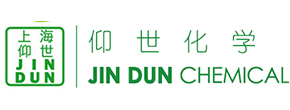Innovative technology has great potential to drive the development of the hydrogen chloride industry in the future
2023/10/8
Common hydrogen chloride production technologies
Direct absorption method: This is one of the most commonly used methods for producing hydrogen chloride. The technical characteristics of the hydrogen chloride industry point out that by directly reacting chlorine gas (Cl2) with water (H2O), hydrogen chloride gas is generated. The reaction can be carried out at appropriate temperature and pressure, usually in a hydrogen chloride generation furnace. The advantages of this method are simplicity, efficiency, and high yield.
Chlorine oxidation method: This is an indirect method for producing hydrogen chloride. Firstly, chlorine gas is mixed with air or oxygen through a chemical reaction to generate chlorine gas. Chlorine gas is oxidized to produce chlorine gas, which is oxidized to produce chlorine gas. Chlorine gas is oxidized to produce chlorine gas, which is oxidized to produce chlorine gas. Chlorine gas is oxidized to produce chlorine gas, which is oxidized to produce chlorine gas. Chlorine gas is oxidized to produce chlorine gas, which is oxidized to produce chlorine gas. Subsequently, an absorbent is used to react methane gas with water to generate hydrogen chloride. This method requires the use of high-temperature catalysts and requires high reaction conditions.
Blast furnace process method: This method is a widely used hydrogen chloride production technology in the metallurgical industry. During the combustion process of the blast furnace, chloride containing substances such as iron chloride (FeCl2) or sodium chloride (NaCl) are injected to react with the water vapor in the blast furnace gas to generate hydrogen chloride. The advantage of this method is that it can utilize the waste heat from blast furnace gas and simultaneously produce useful by-products such as iron chloride or sodium chloride.
These are common hydrogen chloride production technologies, and different methods are suitable for different production scales and process requirements. In practical applications, it is also necessary to consider factors such as safety, energy consumption, and environmental factors to select suitable production technologies.
Technical characteristics of the hydrogen chloride industry
Hydrogen chloride, as an important chemical raw material, has always been a research hotspot in the industry for its production and application. In recent years, some innovative technologies have emerged in the field of hydrogen chloride, with the goal of improving production efficiency, reducing energy consumption, and improving product quality.
The following are innovative technologies for hydrogen chloride
Solution electrolysis method: This technology converts saturated sodium chloride solution into chlorine gas and hydrogen gas during the electrolysis process, and then generates hydrogen chloride through a mixed reaction. Compared with traditional direct absorption methods, this method has higher yield and energy efficiency.
Thin film processing technology: Due to the strong corrosiveness of hydrogen chloride to metal materials, the use of polymer material films for coating can effectively extend the service life of the reactor. At the same time, precise thin film processing technology can also control the rate of hydrogen chloride reaction and the quality of the product.
Micro reactor technology: This technology involves the synthesis of hydrogen chloride in a micron scale reactor. The technical characteristics of the hydrogen chloride industry point out that compared with traditional large reactors, micro reactors have advantages such as small space occupation, fast reaction speed, and stable product quality.
New catalysts: Some new materials or surface modification technologies have been applied in the field of hydrogen chloride to improve reaction rate, reduce energy consumption, and improve product quality. For example, loaded metal catalysts, nanocatalysts, etc.
Ultrasonic technology: Ultrasonic technology can promote the mixing of reactants and reaction rate, so it has also been applied in the production of hydrogen chloride. Ultrasonic technology can also improve product purity and reaction efficiency.
The application of these innovative technologies has played an important role in improving the efficiency of hydrogen chloride production, reducing production costs, improving product quality, and has great potential to promote the development of the hydrogen chloride industry in the future.
JIN DUN CHEMICAL has built a special (meth) acrylic monomer manufacturing base in ZHEJIANG province. This makes sure the stable supply of HEMA, HPMA, HEA, HPA, GMA with high level quality. Our special acrylate monomers are widely used for thermosetting acrylic resins, crosslinkable emulsion polymers, acrylate anaerobic adhesive, two-component acrylate adhesive, solvent acrylate adhesive, emulsion acrylate adhesive, paper finishing agent and painting acrylic resins in adhesive.We have also developed the new and special (meth) acrylic monomers and derivatives. Such as the fluorinated acrylate monomers, It can be widely used in coating leveling agent, paints, inks, photosensitive resins, optical materials, fiber treatment, modifier for plastic or rubber field. We are aiming to be the top supplier in the field of special acrylate monomers, to share our rich experience with better quality products and professional service.

